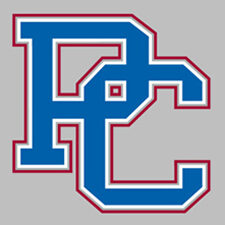- Dive into an interdisciplinary curriculum that spans biology, economics, philosophy, psychology, public policy, and sociology, preparing you for a multifaceted view of health issues.
- Start with core courses in U.S. public health policy and epidemiology to build a solid base of knowledge.
- Customize your learning experience with 12 to 13 hours of elective coursework tailored to your interests and career aspirations.
- Combined with an appropriate major, graduates find opportunities in diverse fields such as dentistry, environmental studies, health education, medicine, nursing, nutritional science, and more.
- Careers in the fields related to this minor can earn between $35,000 to over $120,000 a year, according to the U.S. Bureau of Labor Statistics.
- Alumni of the program have gone on to high-impact roles at prestigious organizations like the Centers for Disease Control and Prevention, CACI International, and the National Institutes of Health.
- Ideal for students planning careers in health-related fields, adding valuable public health knowledge to their professional skill set.
- Engage in courses that not only teach theoretical knowledge but also offer practical skills in data analytics, medical ethics, and more, to prepare you for real-world challenges.
WHAT YOU’LL STUDY
You must complete 18-19 hours of coursework to earn a minor in public health policy. Two foundational courses are required; Public Health (PUBH) 329 provides students a broad understanding of the structure and dynamics of U.S. public health policy, and Public Health (PUBH) 201 introduces students to the principles of epidemiology to support population-based and community-health assessment and evaluation.
With a firm foundation in public health policy, you’ll then select 12 to 13 hours with courses in:
- Biology
- Economics/business administration
- Philosophy
- Psychology
- Public policy
- Sociology
Courses like Data Analytics I, Medical Ethics, and Lifespan Development show the range of topics you can study when you minor in public health policy.
MORE INFORMATION
- CO = Co-requisite
- CO = Co-requisite
- POI = Permissions of Instructor
- PR = Pre-requisite
- RE = Recommended
- XL = Cross-listed
CAREER OUTCOMES
The public health policy minor at PC helps pre-professional students acquire public health knowledge that complements their career paths. If you’re planning to pursue a career in something other than public health, you can also benefit from public health knowledge as you deliver services. A few examples of these career fields include:
- dentistry
- environmental studies
- health education
- medicine
- nursing
- nutritional science
- occupational therapy
- physician assistant
- psychology
According to the U.S. Bureau of Labor and Statistics, individuals in these career fields made between $35,000 to more than $120,000 a year.
Several PC graduates have gone on to successful careers in the field. A few include:
- Zach Braden ’01, Deputy Director of Management and Operations, Centers for Disease Control and Prevention
- Shelley Whitehead ’11, Senior Entomologist at Manatee County Mosquito Control
- Emily Witt ’13, Public Health Analyst, CACI International, Previously with CDC
- Courtney Bell Wood ’06, Management Analyst, National Institutes of Health
CAREER PROFESSIONS
- Dentistry
- Environmental Studies
- Health Education
- Medicine
- Nursing
- Nutritional Science
- Occupational Therapy
- Physician Assistant
- Psychology




